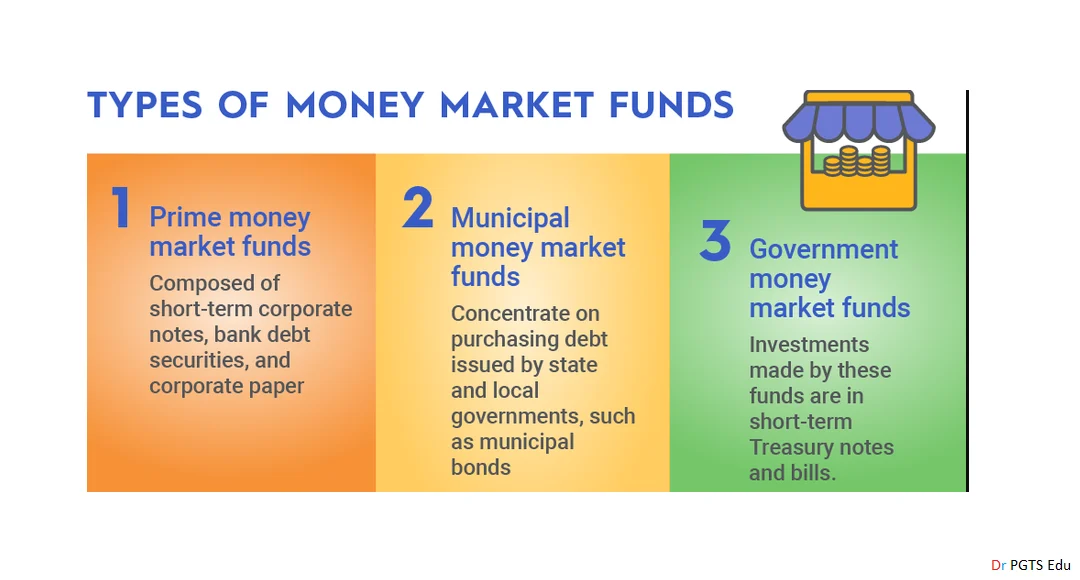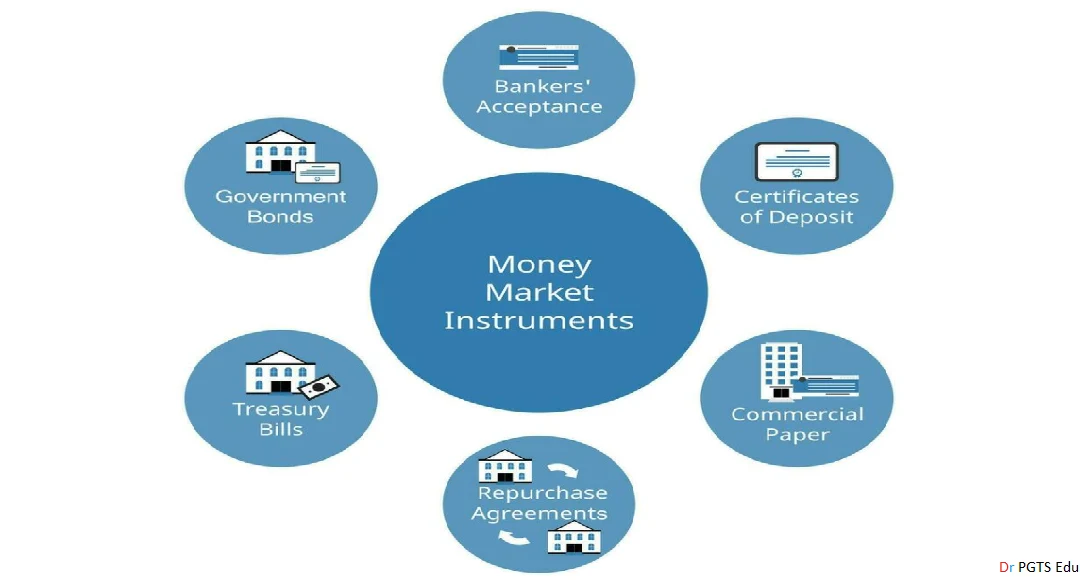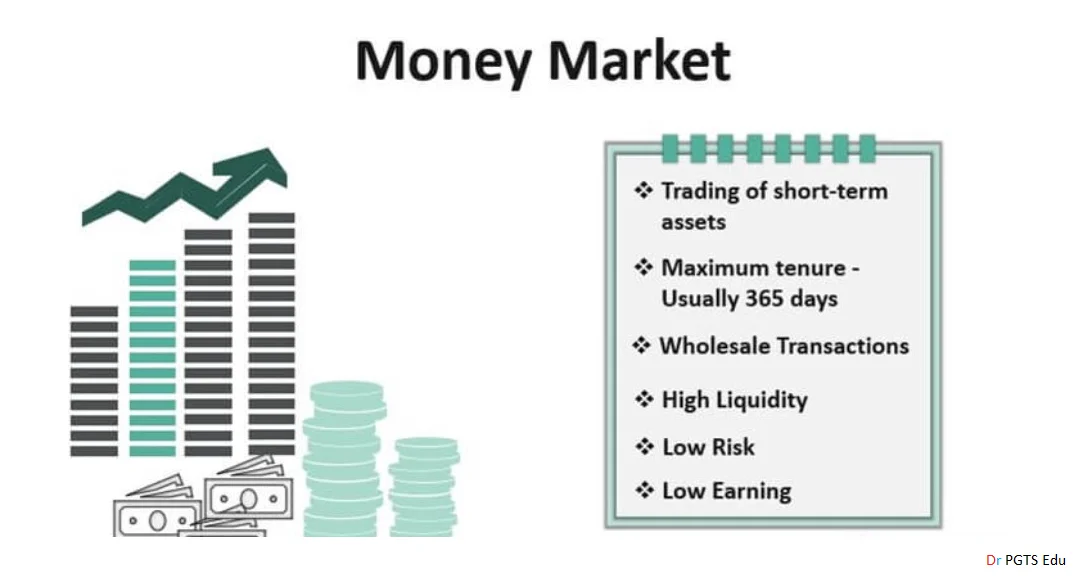The Hidden Power of Money Market Funds Investing is often a delicate balance between risk and return. While high-risk investments can promise substantial gains, they also come with the danger of significant losses. This is where Money Market Funds (MMFs) shine. Offering stability, liquidity, and decent returns, MMFs are a great way to grow wealth while minimizing risk. In this article, we will explore the meaning, features, types, functions, merits, and demerits of money market funds, along with a look at their role in India.
What is a Money Market Fund?
A Money Market Fund is a type of mutual fund that invests in short-term, high-quality financial instruments such as treasury bills, certificates of deposit, commercial paper, and repurchase agreements. These funds aim to provide investors with liquidity and capital preservation while generating modest returns.
Features of Money Market Funds
- Short-Term Investments – MMFs invest in securities with maturities typically under one year.
- High Liquidity – Investors can easily buy and sell their shares, making MMFs an excellent choice for short-term parking of funds.
- Low Risk – MMFs are relatively stable since they invest in highly-rated and low-risk securities.
- Stable Returns – Though not as high as equity funds, MMFs offer better returns than traditional savings accounts.
- Regulated by Authorities – In most countries, MMFs are regulated by financial bodies like the SEC in the U.S. or SEBI in India, ensuring investor protection.
Types of Money Market Funds

- Government Money Market Funds – Invest primarily in government securities like treasury bills, offering maximum security.
- Prime Money Market Funds – Invest in corporate debt securities, commercial paper, and government-backed instruments, providing slightly higher returns.
- Tax-Exempt Money Market Funds – Invest in municipal securities that offer tax benefits to investors.
- Institutional Money Market Funds – Designed for large investors like corporations and institutions with higher investment requirements.
Functions of Money Market Funds
- Providing Liquidity – MMFs allow investors to park surplus funds for short periods while ensuring easy accessibility.
- Maintaining Financial Stability – By investing in low-risk securities, they contribute to a stable financial environment.
- Facilitating Short-Term Borrowing – Companies and governments use MMFs to raise short-term capital at lower interest rates.
- Helping Investors Diversify – MMFs provide an alternative investment avenue for those looking to balance their portfolios.
Merits of Money Market Funds
- Safety of Capital – Investing in low-risk securities ensures capital preservation.
- Better Returns than Savings Accounts – MMFs offer higher interest rates than traditional savings accounts.
- Flexibility and Accessibility – Investors can withdraw money easily without significant penalties.
- Diversification – MMFs invest in a wide range of short-term instruments, reducing the risk of capital loss.
- Professional Management – Experienced fund managers handle MMFs, ensuring optimal returns with minimal risk.
Demerits of Money Market Funds
- Lower Returns Compared to Equities – While safer, MMFs do not offer high returns like stocks or equity mutual funds.
- Not Risk-Free – Although considered safe, MMFs can still be affected by market volatility or interest rate changes.
- Inflation Risk – The returns may not always keep up with inflation, eroding purchasing power over time.
- Management Fees – Some MMFs charge fees, which can eat into overall returns.
Money Market in India
In India, the money market plays a crucial role in maintaining liquidity and stability in the financial system. The Reserve Bank of India (RBI) regulates the money market, ensuring smooth transactions between financial institutions. The key instruments in the Indian money market include:

- Treasury Bills (T-Bills) – Short-term government securities issued by the RBI.
- Commercial Papers (CPs) – Unsecured promissory notes issued by corporations to raise short-term capital.
- Certificates of Deposit (CDs) – Issued by banks and financial institutions as short-term fixed deposit instruments.
- Call Money Market – Facilitates short-term borrowing and lending among banks.
Leading mutual fund companies such as HDFC, ICICI Prudential, and SBI Mutual Fund offer money market funds tailored to Indian investors.
Money Market Funds are an excellent option for investors seeking a balance between safety, liquidity, and moderate returns. While they do not offer the high-profit potential of stocks, they provide stability and quick access to cash, making them an ideal choice for short-term investments. In India, MMFs are gaining popularity as an effective way to park idle funds while ensuring reasonable returns. For risk-averse investors, they are a must-have component in a well-diversified portfolio.
Read also: Capital markets explained how to grow your wealth like a pro

